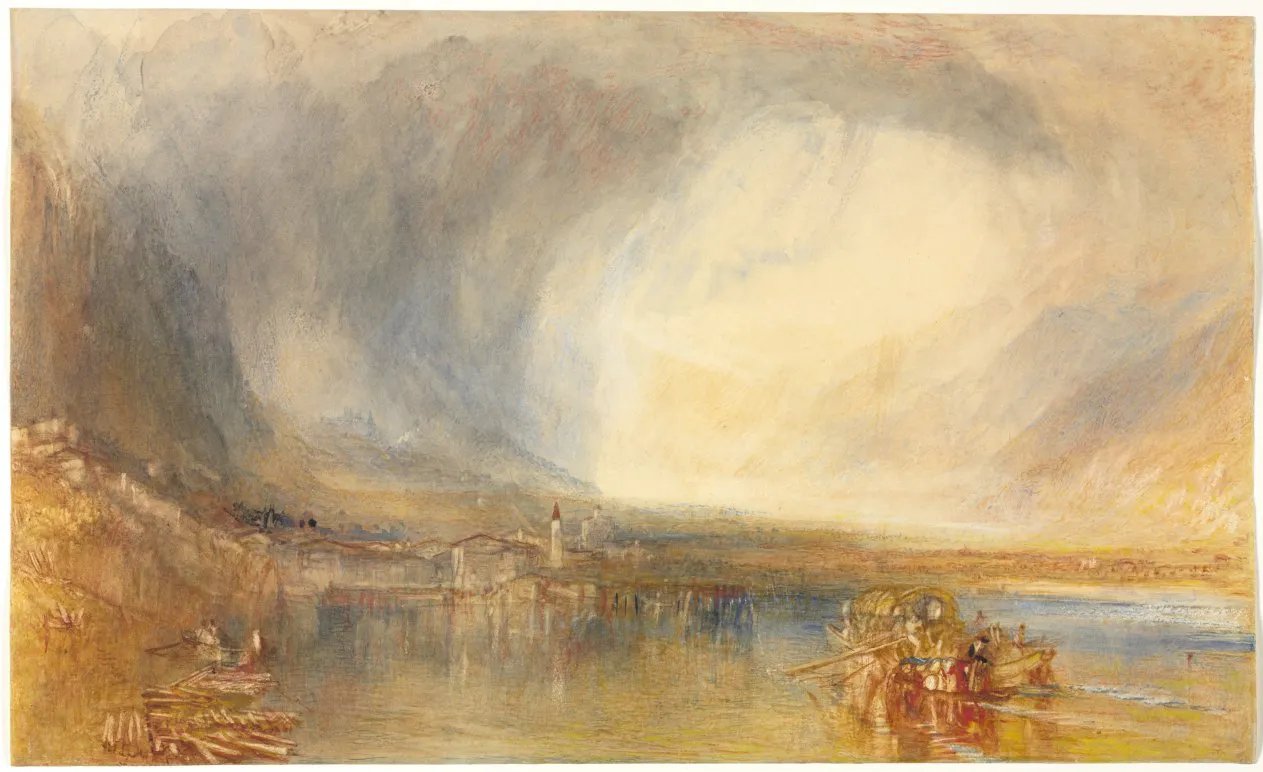Parvis (AD S3E10)
Last updated: 7/17/2024 | Originally published: 2/8/2021
Applied Dilettantery is on vacation. Come back in two weeks for the conclusion of “The Structure”. In the meantime, here is some flash fiction.
 “Flüelen, from the Lake of Lucerne”, Joseph Mallord William Turner, 1845
“Flüelen, from the Lake of Lucerne”, Joseph Mallord William Turner, 1845
From the Travelogue of Multan Dzhon: Parvis
Parvis is a coastal city, a fact which conditions everything about the daily life of a Parvian.
Parvis is also an alpine city, a fact which conditions everything about the daily life of a Parvian.
These two facts are not, as they would be elsewhere, a mere contradiction; rather, Parvis is built along a narrow stretch of ground between a mountain and the sea, the only routes in or out the narrow highway north or south that wind along the coast for a few hundred miles. Some of those who are truly brave risk the mountain passes, but as most of those who do never come back, it is rather uneconomical to pass goods that direction. Similarly, though there are docks in Parvis, these are largely for Parvian use, as Parvis has no natural bay and most ships have no hope of stopping there. So, for the most part, it is north or south or nothing.
This may lead one to wonder why Parvis even exists, when the necessaries for daily life must be towed, mostly by donkey, up the coastal highway, which is in many places much too steep for wheeled vehicles to safely travel. Unfortunately, even the oldest histories I have consulted — yes, even the dusty scrolls of the Great Library of Heppopopolia, even the collection of the Scholarch of the Academy — list no origin for Parvis. Even the Parvians themselves seem to have no civic foundation myth; the old men, at home in their seaside cafe, seemed confounded by the very question. “Has Parvis not stood since the creation of the world?” one joked, to laughter all around.
In any case, it seems obvious that there was at least a small fishing village here from earliest times. Perhaps those earliest settlers were drawn here for the same reason we are today — the beautiful blue water, the rugged (if somewhat ominous) peaks, the placid pace of life. That was definitely the case for the wealthy citizens of the Irutani Empire, who left the first definite accounts that match the city we know today. Indeed, they match so closely that one almost wonders if the city has changed at all since then. Certainly, the cafe goers feel that life must have gone on just like this since time immemorial.
On the topic of cafes —
There is a gap in the manuscript, where Multan Dzhon apparently describes the cafe culture, already present in his day and still well-known today, before moving on to his theory about the origin of the cafe culture (since debunked).
— and the introduction of those beans, via the Alburgh dynasty (peace and health under Heaven, etc) under whose protection I travel, which came to control Parvis but a century or two ago, is the proximate cause for the spread of cafe culture.
Interestingly, the cafes all face towards the ocean. Every single last Parvian seems to share a set of superstitions about the mountains, and very few are willing to travel into the mountains far enough to lose sight of the city. There are a wide variety of tall tales about the sad fates of those that wander into the mountains; so many, in fact, that one is led to conclude that every Parvian citizen has contributed a story to the pile. According to most of these stories, a monster haunts the slopes, which they call the Bogu, though the exact nature of this beast differs from teller to teller. However, I conjecture that the true identity of the monster is —
The manuscript breaks off here. When it next becomes legible, Multan Dzhon has apparently left Parvis and is now in the company of a Parvian ass-driver, who is regaling him with some of those tales of the sad fates of those that wander into the mountains, one of which he repeats.